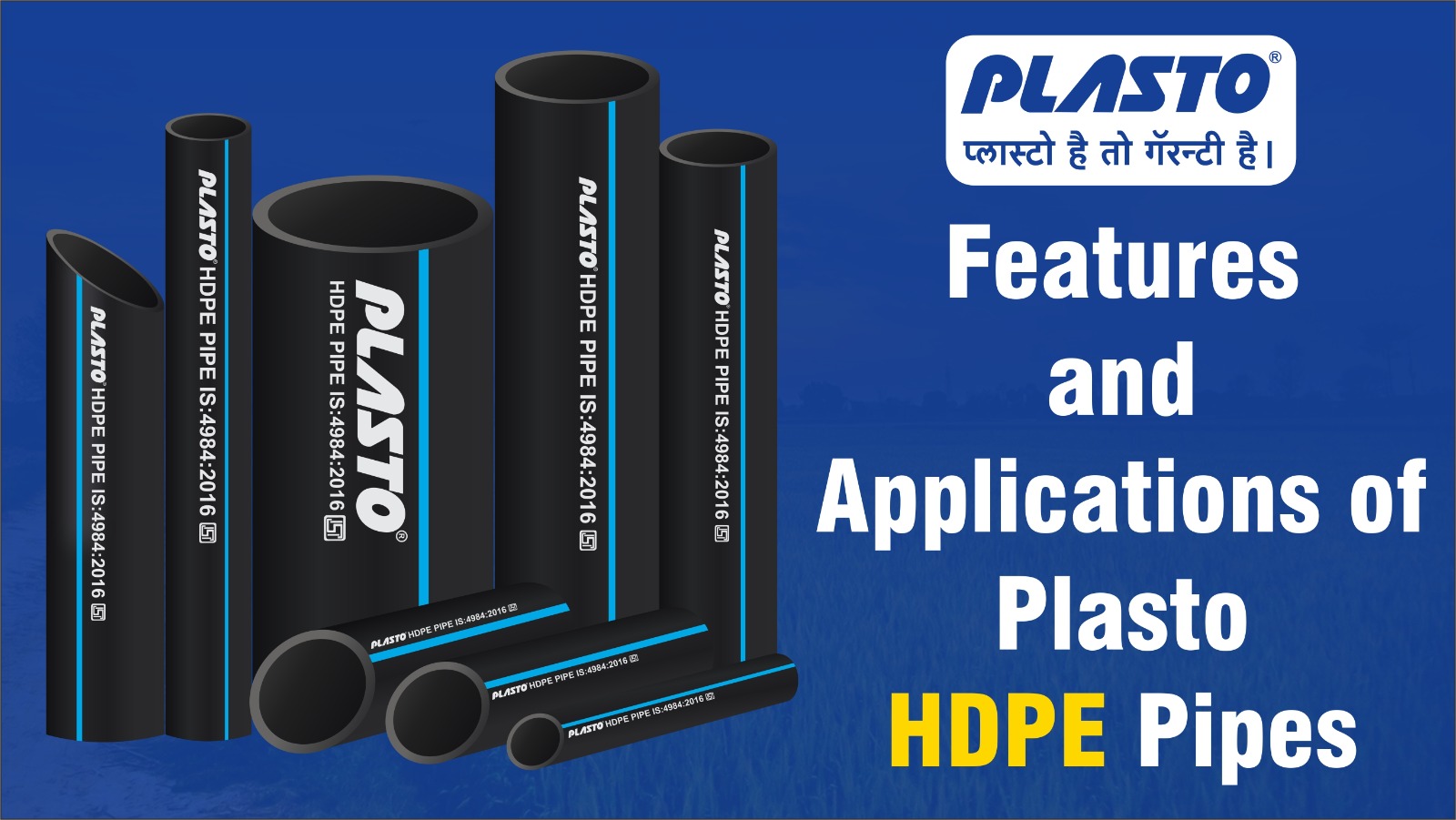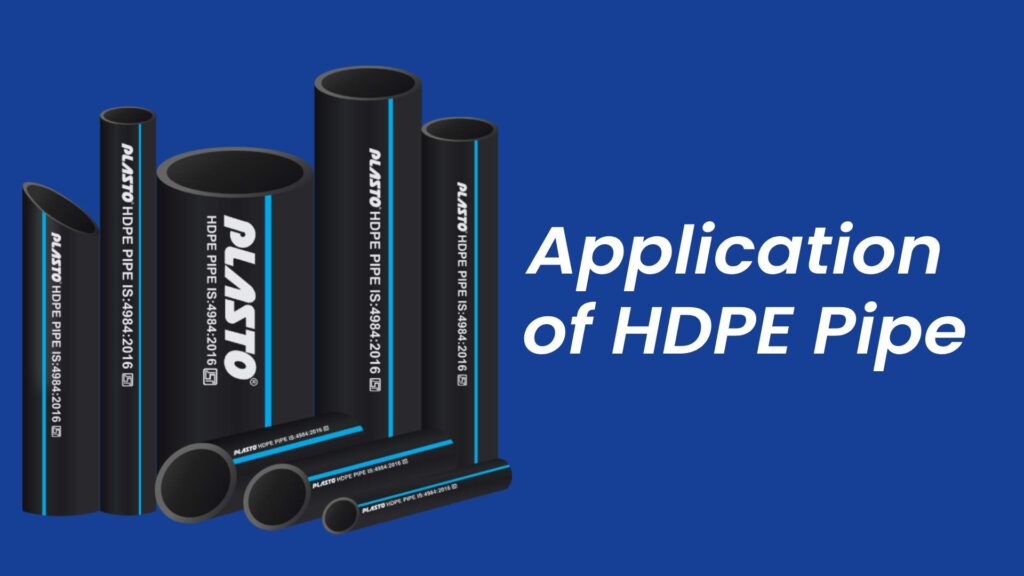
In the world of modern construction and infrastructure development, the choice of piping material plays a crucial role in ensuring the longevity, efficiency, and sustainability of projects. High-density polyethylene (HDPE) pipes have emerged as a versatile and durable solution for a wide range of applications. Plasto HDPE Pipe is renowned for its quality and innovation. In this blog, we will delve into the features and applications that make Plasto HDPE Pipes stand out.
Features of Plasto HDPE Pipes
- Durability: Plasto HDPE Pipes are known for their exceptional durability. They are resistant to corrosion, chemical reactions, and abrasion, making them suitable for installations in challenging environments. This longevity ensures a reduced need for frequent replacements, translating to cost savings over time.
- Flexibility: HDPE pipes are highly flexible, allowing them to withstand ground movements and settlement without compromising their structural integrity. This flexibility also simplifies installation, especially in areas with uneven terrain.
- Leak-Proof Joints: Plasto HDPE Pipes are equipped with leak-proof joints, ensuring a reliable and secure connection. These joints minimize the chances of water leakage, preventing potential water wastage and damage to infrastructure.
- Lightweight: HDPE pipes have a considerably lower weight compared to traditional materials like metal and concrete. This characteristic eases transportation, handling, and installation, reducing the overall project’s labor and energy costs.
- Chemical Resistance: Plasto HDPE Pipes exhibit excellent resistance to various chemicals, making them suitable for transporting both potable and non-potable water, as well as a range of industrial fluids without degradation.
- UV Resistance: HDPE pipes are designed to withstand prolonged exposure to ultraviolet (UV) rays from the sun. This makes them suitable for above-ground applications without requiring additional protective coatings.
- Smooth Inner Surface: The smooth inner surface of Plasto HDPE Pipes reduces friction and ensures efficient flow of fluids. This characteristic is particularly beneficial for applications involving the transportation of liquids.
Applications of Plasto HDPE Pipes

- Water Supply: Plasto HDPE Pipes are extensively used for water distribution systems due to their leak-proof joints and corrosion resistance. Whether it’s municipal water supply or rural water projects, these pipes ensure safe and consistent water delivery.
- Sewage and Drainage: HDPE pipes are ideal for sewage and drainage systems due to their chemical resistance and smooth interior, which prevents the accumulation of debris and facilitates smooth flow.
- Irrigation: Agriculture benefits from HDPE pipes as they can withstand the rigors of irrigation systems. Their flexibility and chemical resistance make them suitable for transporting fertilizers and pesticides as well.
- Industrial Applications: From transporting chemicals to managing effluents, HDPE pipes find use in various industrial applications due to their chemical and abrasion resistance.
- Telecommunication and Cable Ducts: The lightweight nature of HDPE pipes makes them suitable for underground cable and telecommunication ducts, facilitating the safe routing of cables.
Conclusion
Plasto HDPE Pipes have become synonymous with durability, flexibility, and reliability in the world of piping solutions. Their remarkable features, including leak-proof joints, chemical resistance, and UV resistance, make them an excellent choice for a wide range of applications, from water supply to industrial use. As we look to the future of construction and infrastructure, the role of innovative and sustainable materials like Plasto HDPE Pipes becomes even more vital.

